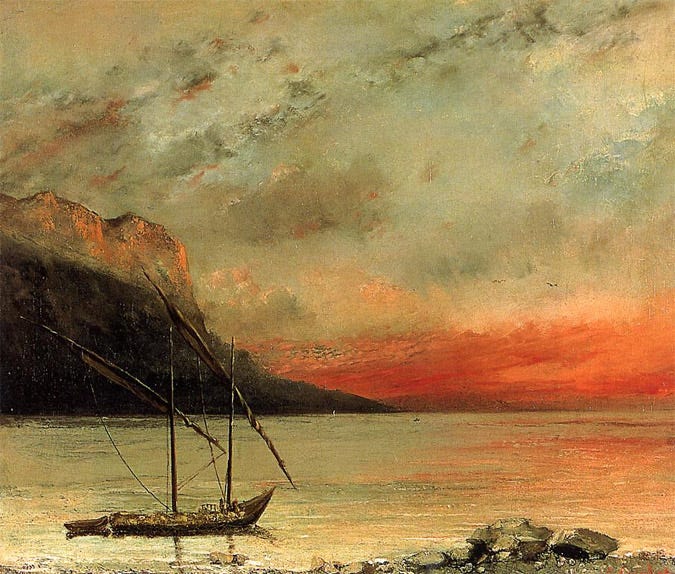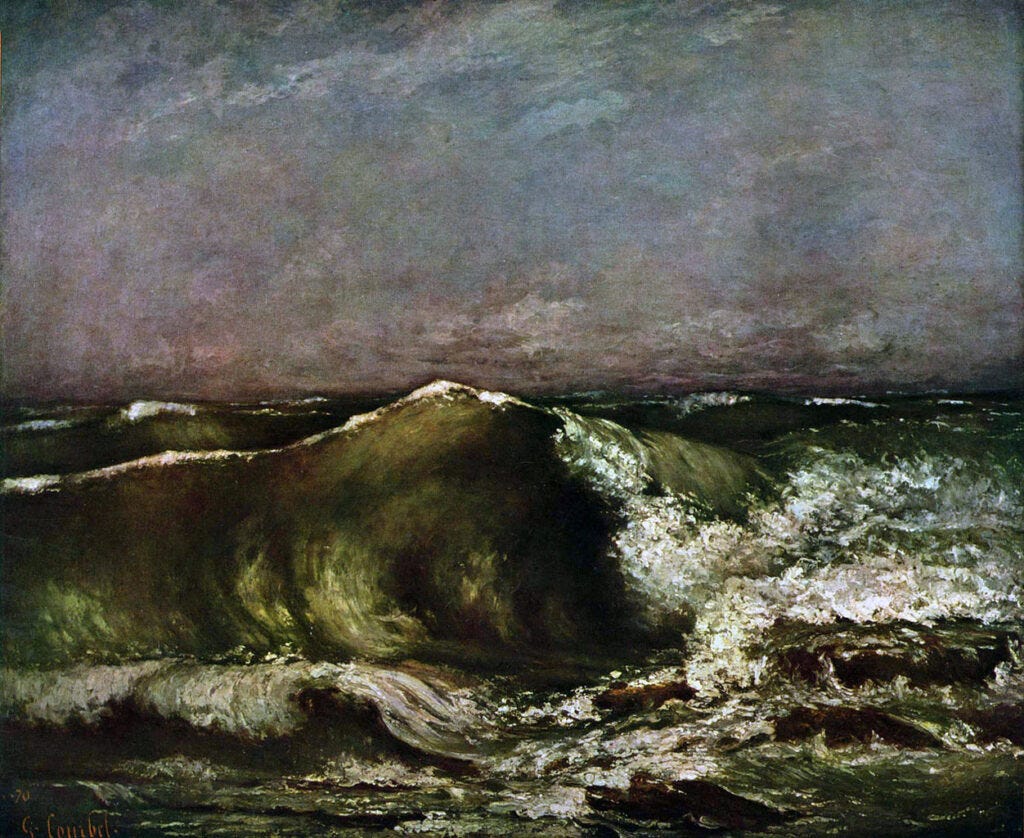It Was a Short Time Ago and Never Happened Anyway
Richard Kelly: Brownstone Institute
The moral code of the West, greatly diminished already, has all but disappeared under the onslaught of the last 3 years. A great crime was committed while what’s left of morality fought bravely but could make little impact. Lives were ruined, wealth was stolen, agency snatched away. Lockdown as a tactic appears defeated for the moment – vaccine injury is still hush-hush.
There are other good reasons to think the onslaught is not over, that we are at the moment in a ‘phony war’ while enemy forces regroup. Inflation, energy, food, surveillance are all active fronts in the broader battle. It hardly matters which one will flare up next.
In each case, the battle boils down to privileging the immediate needs of the individual, over the perceived, modelled, future ‘needs of the state’ or indeed the ‘needs of the planet.’ The primacy of the individual over the ‘needs of the state’ (or the ‘needs of the planet’ as a more palatable lie) is under serious, imminent threat. To survive, and eventually perhaps to recover, we are going to have to face painful truths.
At the moment, the best some people can manage is to stay silent, where before they may have been quietly collaborating with lockdowns, masks, social distancing – which let’s face it, are disgusting euphemisms for, respectively, imprisonment, assault and solitary confinement.
Some people are not even at that point. They are still completely unaware of what has happened to them, and what they are doing to others. They are like the Japanese soldiers still fighting the war in the Pacific decades later. For them, a deadly pathogen stalks their every move; they persist with their magic incantations, costumes and dances, by which I mean endlessly talking about Covid and cases and variants, wearing filthy bacteria-infested porous rags on their faces, and avoiding handshakes in favour of pathetic hands-clasped-in-prayer nodding and bowing.
Their magic cannot offer salvation, but they don’t realise that and it’s all they have. They have lost any ability to think for themselves. They are Henny Penny – “The sky is falling!” Why else would they say “Oh dear, a member of our congregation has Covid, we’d better put masks on this Sunday just to be sure.”
To be sure of what, exactly? I’ll tell you what – lurking in the back of their conscience, is the fear that they might accidentally open their eyes to the truth, and be exposed for the fool (at best) or the monster (at worst) that they already were, or became. What they want to ‘be sure’ of is that this nagging doubt is never brought to the surface.
Some people, as we see starting to emerge, confident enough in their own track record of behaviour throughout this whole shooting match, who see themselves as having had ‘a good war,’ have the gall to start talking about forgiveness, skipping straight over those inconvenient moral concepts of confession and justice. Those who fit into this group are also employing ‘the royal we;’ that is, shifting any notion of guilt away from any single individual person, let alone they themselves, instead talking in more abstract terms about what ‘we’ as a society got wrong.
From their point of view, they personally do not have anything to apologise or atone for, but they can be magnanimous enough to forgive others, who acted badly. This is a grotesque spectacle worthy only of contempt.
The German philosopher Karl Jaspers, writing about Germany after World War II, quoted in David Satter’s 2012 book “It was a long time ago and it never happened anyway’ conceived a fourth type of guilt, to add to three more conventional types of guilt: criminal guilt, political guilt and moral guilt. Jaspers proposed ‘metaphysical guilt,’ which affects all those who were touched by atrocious crimes, whether as participants or not:
There exists a solidarity among men as human beings that makes each co-responsible for every wrong and every injustice in the world, especially for crimes committed in his presence or with his his knowledge….If I fail to do whatever I can to prevent them, I too am guilty. If I was present at the murder of others without risking my life to prevent it, I feel guilty in a way not adequately conceivable either legally, politically or morally. That I live after such a thing has happened, weighs upon me as indelible guilt. (Karl Jaspers)
I seriously doubt that those ‘stunning and brave’ souls coming out now proposing amnesty for the lockdown proponents could look themselves in the eye and and absolve themselves of any metaphysical guilt in connection with the atrocities of the last 3 years. On the contrary, a brief look at their Twitter accounts would likely show quite the opposite.
Satter’s book referred to above is an examination of Russia and the communist past, and of the fact that there has been no honest examination of the horror of that period. Satter argues that Russia will be forever hampered by its inability to properly acknowledge and memorialise the victims of the Communist experience. The refusal to concede the truth of what happened is a trap which we are in danger of falling into ourselves. If we do, it will be a long painful journey back out, and we might not make it.
Avoiding the trap, avoiding the analgesic, palliative effects of the seeming return to ‘normality’ will need a Herculean effort. I’m writing this on Melbourne Cup Day, when the rest of the city and perhaps the country, if you believe the marketing, gets excited about the ‘race which stops the nation.’ How comforting to fall into the embrace of the colour and movement, the predictable stories of jockeys and trainers, and thoroughbreds, and fashions and hats, and drunkards and parties, and costumes and suits. It’s so much nicer to forget that all that Covid bullshit ever happened.
But it won’t go away just because you’d prefer to go to the races.
I think we can categorise people on a spectrum of denial/acceptance of what the last 3 years entailed. At the denial extreme, are people who actively deny that any atrocities took place. These are the ones about whom we might say ‘methinks thou doest protest too much;’ their active denial likely a front to hide their guilt of which they are all too aware.
Next are those who passively deny it all by deliberately distracting themselves with other matters, like the Melbourne Cup, and avoiding all talk of ‘it.’ In the middle are the soporific, the ones who don’t even know that something untoward happened, have no consciousness of it, and no inkling that anything ought to be done about it. Venturing beyond the tipping point towards acceptance, the next group are those who understand viscerally that ‘it’ was a sorry chapter but one which will fade into history – the ‘let’s move on’ crowd. At the acceptance end are those who have thought about it, have been horrified by it, have done, or tried to do, something about it.
The closest some people get is to say “how nice it is to be able to go to the Melbourne Cup and associate freely again.” Of course the truthful reflection should be ‘how appalling it was that they ever presumed to stop us associating freely, those bastards.”
By now most people will have found one of these positions along the spectrum within which, for the moment at least, they can manage a way forward, a way to keep going in quiet desperation each day with whatever tasks confront them. I think it will be difficult for anyone to move ‘left’ towards the denial end or ‘right’ towards the acceptance end. If once you have opened your eyes, you can’t unsee what is in front of them, so you can’t go back towards denial.
Likewise, opening one’s eyes unfolds a horrible prospect of what might be further to the ‘right’ – what more will I discover that will appall me? Best not go any further. The exception to this might be those at the acceptance end who, though trying to do something about it, trying to correct the injustices, eventually run out of fortitude, and slip left toward the ‘move on’ crowd. Karl Jaspers again:
We are sorely deficient in talking to each other and listening to each other. We lack mobility, criticism and self-criticism. We incline to doctrinism. What makes it worse is that so many people do not want to think. They only want slogans and obedience. They ask no questions and they give no answers, except by repeating drilled in phrases.
Jaspers’ words echo loudly today. How are we ever to break through to an honest reflection of the atrocities of the last 3 years faced with such intransigence on the part of the very victims of the lockdowns and the vaccines? It seems almost hopeless.
Some conversations that need to happen face insurmountable obstacles. Some hurts are so deep that they cannot even be written about, except perhaps in a secret journal. These are the conversations between once-were-friends, between parents and children, between husbands and wives, between bosses and staff; destined never to happen, the conversations hold the key to reconciliation.
Those in a rush, those making undue haste toward apology and justice, need to bear this in mind. We’re in it for the long haul; raging at those whom we judge to be most complicit is unlikely to bear fruit in the short term, and the more incandescent our rage the quicker we will burn out. A final word from Jaspers:
All of us have somehow lost the ground under our feet. Only a transcendent…religious or philosophical faith can maintain itself through all these disasters.
I’ll be back at church on Sunday. Without a mask. Offering handshakes.
Richard Kelly, a retired 60 yo, born and bred in Melbourne. He spent a couple of years as a mathematics teacher before moving into Insurance and Superannuation/Investments first as a trainee actuary and then as a business analyst with some of the largest institutions in Australia








